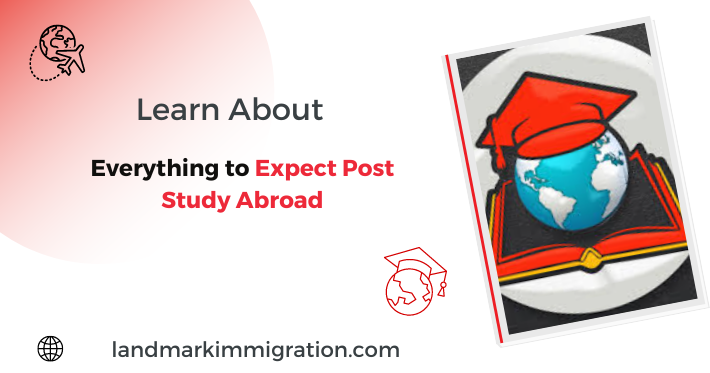
2 February 2024
Studying abroad is an incredible experience that can change your life in many ways. You’ll likely return home with a newfound perspective on the world, new skills and knowledge, and a lifetime of memories. But what happens after the adventure is over? Here’s a look at what you can expect when you return home from studying abroad:
- Cultural Adjustment
Returning home after an extended period abroad can be both exciting and challenging. You may have developed new habits, perspectives, and ways of thinking that differ from those of your home country. This cultural adjustment can manifest in various aspects of your life, from communication styles to daily routines.
Tip: Be patient with yourself and others. Give yourself time to readjust, and maintain an open mind to appreciate the positives of both cultures.
- Reverse Culture Shock
Contrary to popular belief, returning to your home country may not always feel like a seamless transition. Many students experience reverse culture shock, where the familiar can suddenly feel unfamiliar. This can include feelings of isolation, frustration, or even disappointment as you compare your experiences abroad to your expectations at home.
You might think that the hardest part of studying abroad is being away from home, but many students find that returning home can be just as challenging. This is called reverse culture shock, and it’s caused by the feeling of being out of place in your own culture after being immersed in a new one. Symptoms of reverse culture shock can include:
- Feeling frustrated or disappointed with your home culture
- Missing the food, customs, and people of your host country
- Having difficulty reconnecting with friends and family who haven’t shared your experience
- Feeling like you don’t fit in anywhere
Tip:
- Stay connected with friends who have also studied abroad
- Seek support from your university’s international office
- Focus on the positive aspects of your home culture.
- Be patient with yourself and give yourself time to adjust.
- Talk to friends and family about your experience, connect with other returned students, and find ways to stay connected to your host culture.
- Resume Building and Career Opportunities
Your time abroad has likely equipped you with a set of unique skills, including adaptability, cross-cultural communication, and independence. When rejoining the workforce or pursuing further studies, ensure to emphasize these experiences on your resume and during job interviews. Employers frequently appreciate candidates with international exposure and the proficiency to navigate diverse environments.
Tip: Craft a compelling narrative about your time abroad; emphasizing the skills and personal growth you gained during your studies.
- Maintaining Global Connections
The friendships and connections you made while studying abroad are invaluable. Thanks to technology, it’s easier than ever to maintain these global connections. Leverage social media, video calls, and messaging apps to stay in touch with friends from around the world. Networking with individuals from different cultures can open up future opportunities and broaden your perspective.
Tip: Schedule regular catch-ups with your international friends and consider participating in alumni events organized by your university or other study abroad programs.
- Building on the Lessons Learned
Studying abroad is a great way to develop new skills and knowledge. You’ll likely improve your language skills; learn about different cultures, and gain independence and resourcefulness. These skills and knowledge can be valuable assets in your personal and professional life.
When you return home, be sure to highlight your new skills and knowledge on your resume and in job interviews. You can also use your experience to volunteer in your community or get involved in organizations that focus on international exchange.
Reflect on the lessons and personal growth you experienced while studying abroad. How can you incorporate these into your daily life back home? Whether it’s embracing a more global mindset, being more open to diversity, or adopting new habits, use your experiences abroad as a foundation for personal development.
Tip: Keep a journal or blog to document your reflections and goals for the future. This can serve as a valuable resource for self-discovery and growth.
- Continuing Language Skills
If you immerse yourself in a foreign language during your studies, it’s essential to maintain and build upon those language skills. Join language exchange programs, find language meetups, or engage in online language courses to ensure that you don’t lose the proficiency you worked so hard to attain.
Tip: Set language-learning goals and integrate the language into your daily life, whether through reading, watching movies, or conversing with native speakers.
- A Changed Perspective
One of the most profound effects of studying abroad is that it can change your perspective on the world. You’ll be more open-minded and understanding of different cultures, and you’ll have a greater appreciation for the diversity of human experience.
This new perspective can make you a more well-rounded and interesting person. It can also help you to better understand and appreciate your own culture.
Conclusion
Studying abroad is a life-changing experience that extends far beyond the classroom. Embrace the challenges and opportunities that come with returning home, and use your international experiences to shape a more globally aware and culturally enriched future. The post-study abroad period is not just an endpoint but a continuation of the journey you started, with the potential for ongoing growth and discovery. By being aware of what to expect after you return home, you can make the most of your experience and continue to grow and learn from it.




